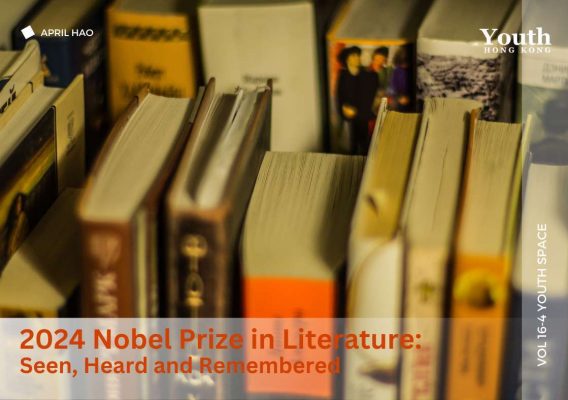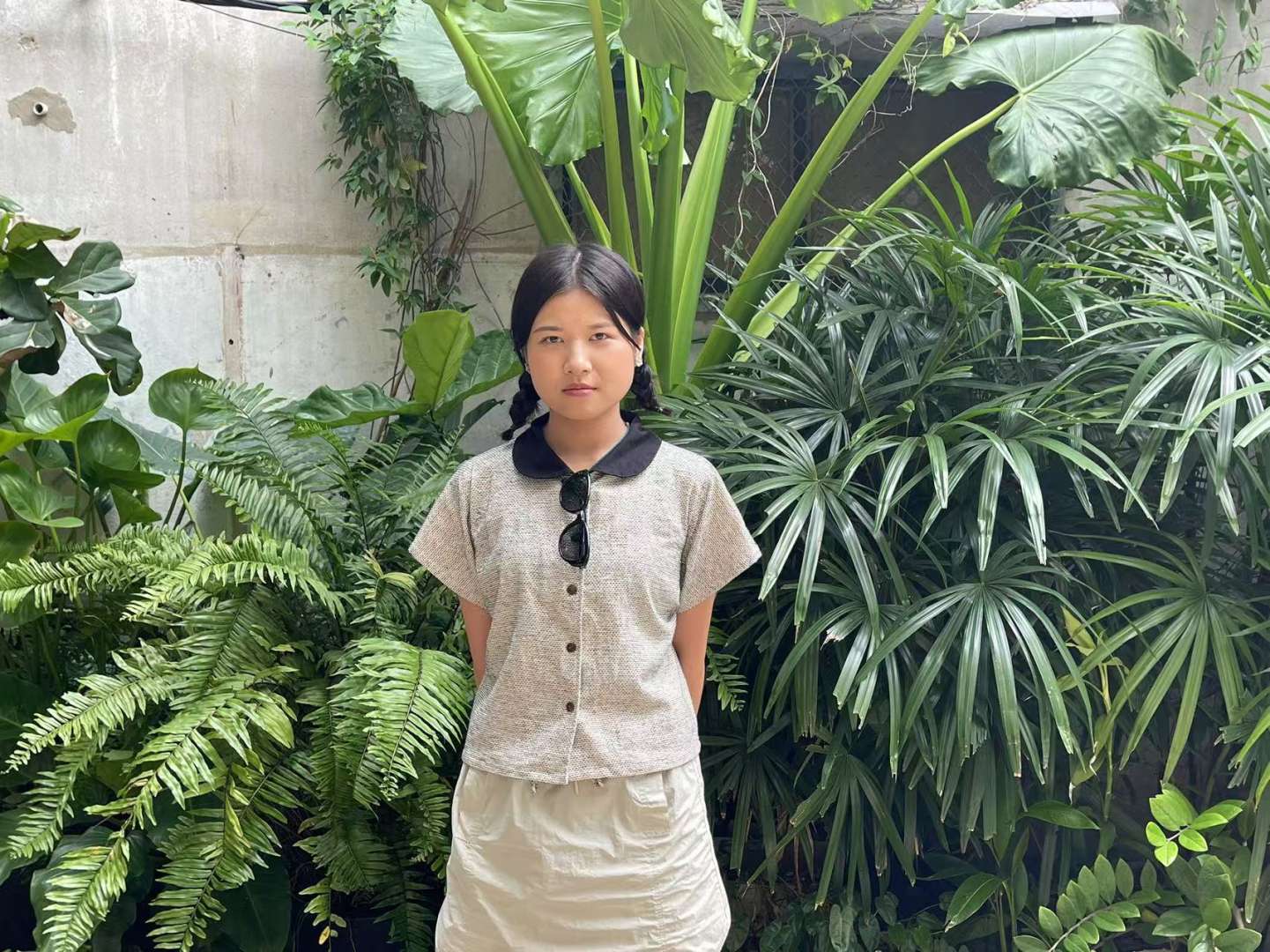//16.4 Youth Space: Literature
by April Hao
Why does South Korean author and Nobel laureate Han Kang’s writing hold a special place in April’s heart?
In the autumn of 2021, I stumbled upon a podcast episode discussing intimate relationships and the struggles women face. That’s when I first heard of South Korean author Han Kang and her novel The Vegetarian. The silent cries of women portrayed in this novel made me pick up the book. Written in plain, straightforward language, the story was easy to follow, yet so intense that I read it with a furrowed brow.
Fast forward three years and Han Kang was awarded the 2024 Nobel Prize in Literature, becoming the first South Korean and first Asian woman to receive this honour. Central to the attention that she is receiving is her most notable work, The Vegetarian.
A Woman’s Silence
Divided into three parts, the novel follows a chronological timeline and offers distinct perspectives from the female protagonist Yeong-hye’s husband, her sister’s husband, and her sister, while the female protagonist remains silent. She is observed, judged, and coerced, but her own voice is conspicuously absent. This silence is a powerful metaphor for the struggles of women under patriarchal systems and the fragility of humanity in the face of violence.
Han Kang’s incisive descriptions, such as “her familiar smile, a smile which could not have been more ordinary” or “the wife who prepares my meals, clothes, and ties every single day” and “the wife who often embarrasses me by not wearing a bra”, reveal how women’s subjectivity is often ignored or dismissed. To her husband, Yeong-hye is little more than a role to be played, devoid of individuality or humanity.
Her silence contrasts starkly with the voices around her. Her husband scorns her; her sister’s husband exploits both her body and willpower; and her family puts pressure on her, driven by concern and fear of her “difference.” When her mother warns her: “Stop eating meat, and the world will devour you whole,” I was choking on emotion from the resignation and hopelessness women often feel. I realise that Yeong-hye’s silent scream is not unheard: her mother understands her silent rebellion but warns against it.
Confronting Historical Traumas
Han Kang’s recognition by the Nobel Committee acknowledges her “intense poetic prose that confronts historical traumas and exposes the fragility of human life.” Beyond The Vegetarian, her work Human Acts explores the brutal realities of the 1980 Gwangju Uprising through surrealist techniques, reflecting on the long-term psychological and societal scars left by such violence.
Born in Gwangju, Han Kang moved to Seoul with her family before the uprising occurred. Although she did not experience the event first-hand, it had a profound influence on her work. Through interviews with survivors, she captured the brutality of the incident and the pervasive sense of powerlessness and guilt experienced by those who lived through it.
Despite the often-violent themes in her work, Han’s prose maintains a calm and composed tone, while consistently exploring the resistance against societal norms and an overwhelming sense of helplessness in the face of violence.
A Voice from East Asia
Han Kang’s writing represents a significant voice from East Asia, embodying a feminist awakening and a new political consciousness emerging in the region. This awakening, however, often brings with it a profound sense of loneliness of an outsider, where one feels overwhelmed by traditional systems and rigid ideologies.
Critics have questioned the expressive limitations of Korean literature, suggesting that the Korean language lacks sufficient vocabulary and literary sophistication, which may hinder its global influence. However, literature is not merely about the technical aspects of language, but the ideas and truths it conveys. The Nobel Prize in Literature does not solely reward the highest literary achievements but also celebrates works that redefine the role of literature in addressing the challenges of a particular era.
After reading Han Kang, I became interested in Korean female writers including Kim Ae-ran, Choi Eun-young, and Kim Hye-jin. While Kim Ae-ran remains my personal favourite, Han Kang’s writing holds a special place. She narrates history through a delicate female perspective, conveying a sense of the grandeur of humanity. These authors, through their nuanced storytelling, make me realise that women’s collective suffering, frustrations, and unspoken feelings are not unseen—but deserve to be seen, heard, and remembered. ■
As a former journalist, April Hao has a keen interest in exploring women’s issues and expressing her concerns through various media platforms.
List of Female Winners of the Nobel Prize in Literature
| Name | Year Awarded | Country | Notable Work |
| Selma Lagerlöf | 1909 | Sweden | The Wonderful Adventures of Nils |
| Grazia Deledda | 1926 | Italy | Elias Portolu |
| Sigrid Undset | 1928 | Norway | Kristin Lavransdatter |
| Pearl Buck | 1938 | United States | The Good Earth |
| Gabriela Mistral | 1945 | Chile | Desolación |
| Nelly Sachs | 1966 | Germany/Sweden | Eli: A Mystery Play of the Sufferings of Israel |
| Nadine Gordimer | 1991 | South Africa | Burger’s Daughter |
| Toni Morrison | 1993 | United States | Beloved |
| Wislawa Szymborska | 1996 | Poland | View with a Grain of Sand |
| Elfriede Jelinek | 2004 | Austria | The Piano Teacher |
| Doris Lessing | 2007 | United Kingdom | The Golden Notebook |
| Herta Müller | 2009 | Romania/Germany | The Hunger Angel |
| Alice Munro | 2013 | Canada | Dear Life |
| Svetlana Alexievich | 2015 | Belarus | Voices from Chernobyl |
| Olga Tokarczuk | 2018 | Poland | Flights |
| Louise Glück | 2020 | United States | The Wild Iris |
| Annie Ernaux | 2022 | France | A Man’s Place |
| Han Kang | 2024 | South Korea | The Vegetarian |



